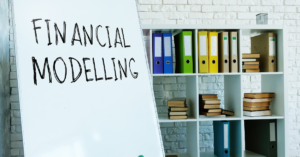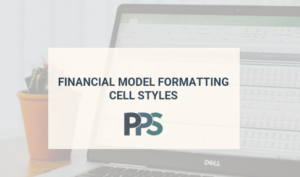Top tips for improving your modelling skills at home
Nothing will beat structured, practical training when it comes to giving you the tools and skills required to become a quality financial modeller, but there are many exercises and tasks you can do at home that involve improving your modelling skills to keep them sharp and even help you learn some new techniques. Here are our top three.
1. Plan your expenditure
Sometimes, it can be difficult to track our outgoings and get to the end of the month without going in the red, especially around holidays.
To combat this, why not build a model which analyses your monthly expenditure? Try building a workbook that takes a download of your bank statement as an input.
It could then categorise each line using lookups, and summarise in a meaningful way to help you understand where your money is going and help you analyse your spending habits.
You could use formulae and/or VBA to automate the process, and charts to visualise the outputs. Depending on the format of your bank statements, you could practice data manipulation as well.
This simple exercise presents lots of different ways to practice existing and build new skills, while also leaving you with a workbook that can help you when managing your personal finances.
2. Model an investment portfolio
Whether you are an investor or aren’t, building even a fake portfolio and tracking it periodically, is a great way to hone your modelling skills.
You could create a model which automatically updates with the latest stock data, model different investments and disposals over time, and calculate the overall return as well as various other metrics.
This is a quick and easy task that can be done as an exercise to keep your skills sharp, or help you manage any investments you have. Just remember us if you hit the jackpot!
3. Do your own taxes
For those who submit a tax return each year, why not do the calculations yourselves?
If you have an agent filing for you, it’s still useful to do the calculations yourself, if for no other reason than to better understand the process and validate the numbers prepared by your accountant.
This exercise is a good way to learn structured modelling by working with different tax bands, income categories and disallowable expenditure.
By understanding the tax law, you will build the research skills needed by modellers, as you can never know every aspect of the industries you model from the outset.
You may even get good enough to no longer need an accountant!
The modelling possibilities in Excel are endless, and so coming up with simple tasks like the above are a good way of improving your modelling skills from your own home, but they will only get you so far. Just be sure to avoid errors by applying modelling best practice. We cover this in one of our one-day courses, packed with examples and exercises to make sure that you leave with tangible skills. You can find out more about this course, as well as our full programme of courses, by clicking here.



